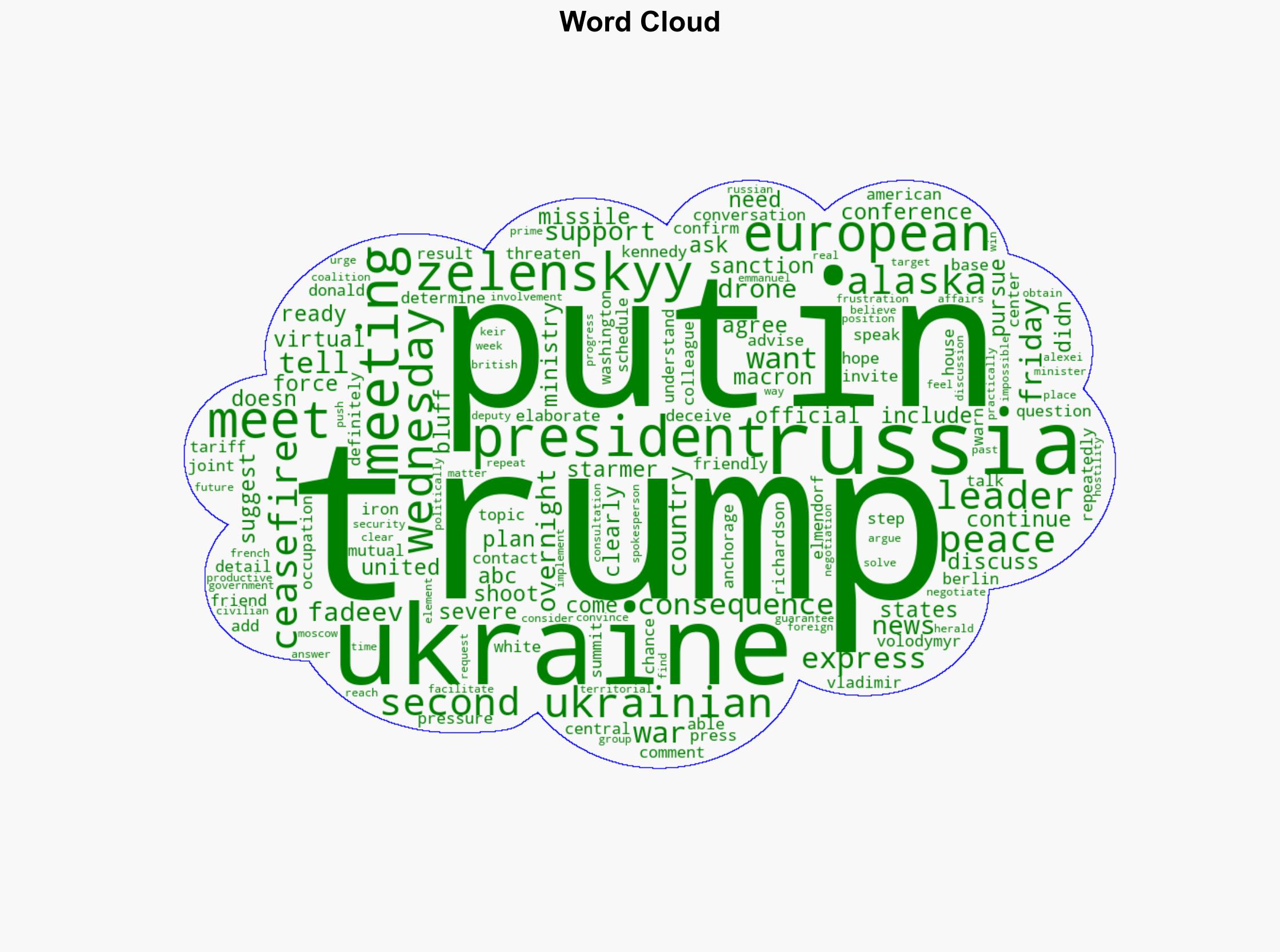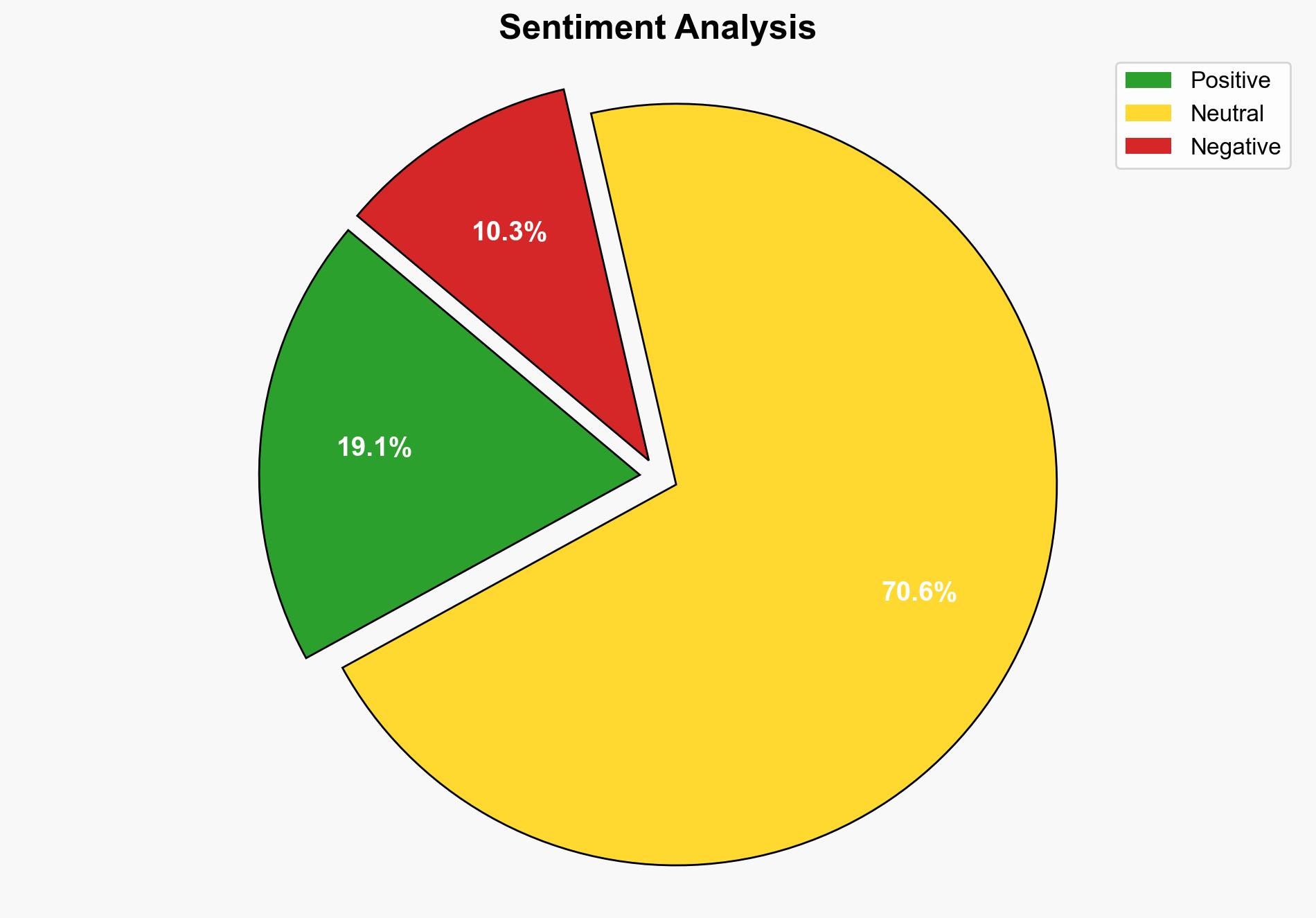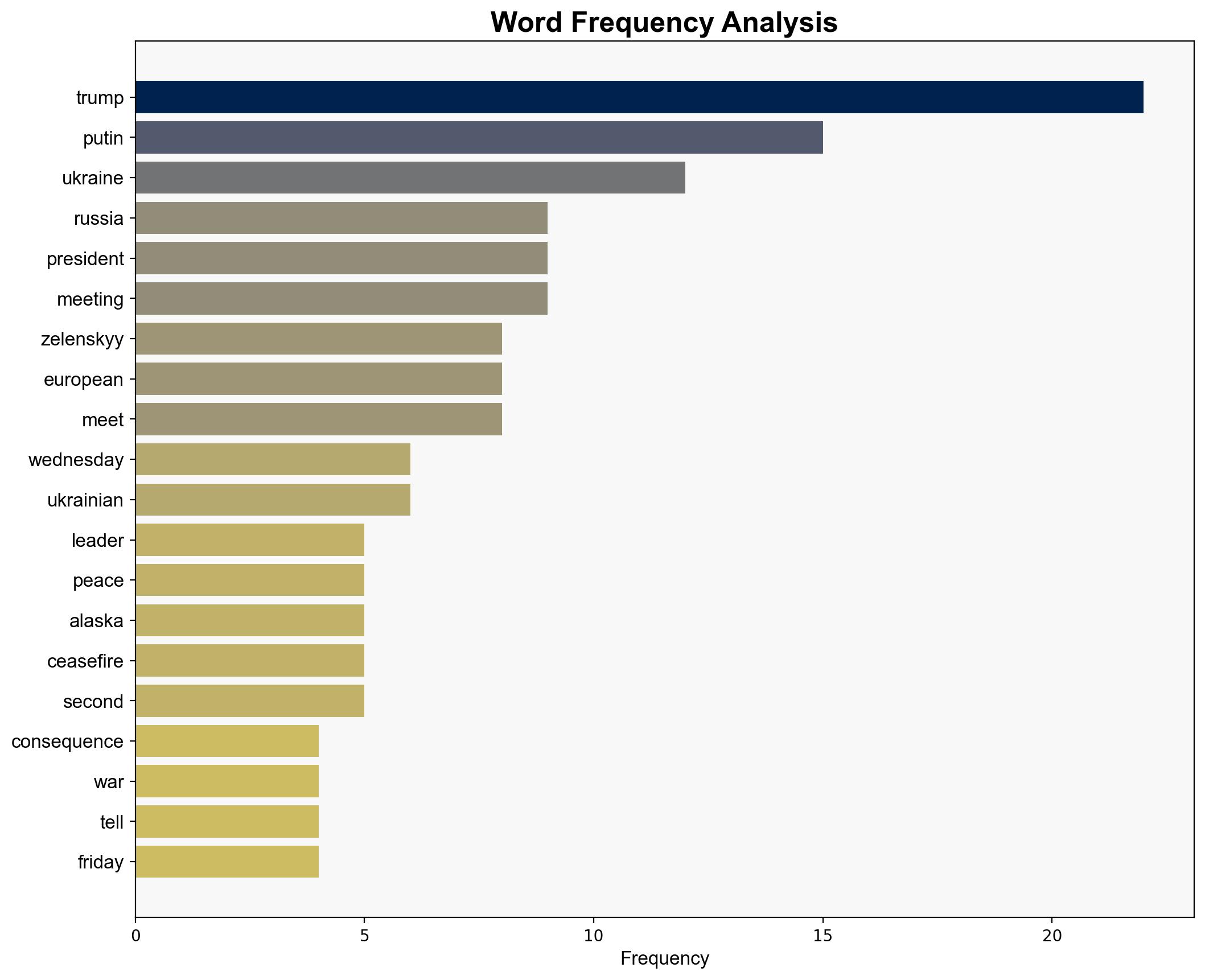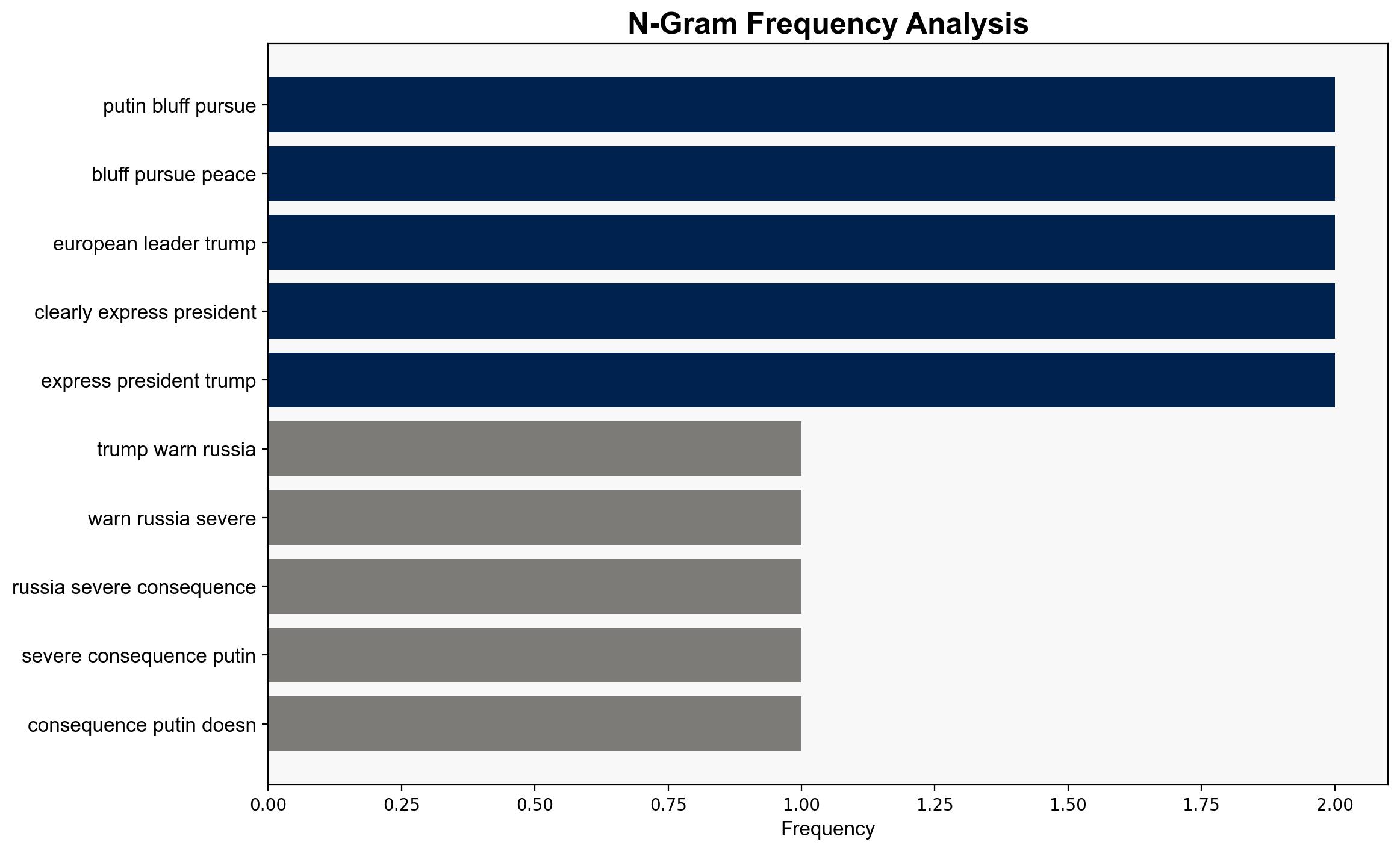Trump-Putin meet will be ‘listening exercise’ US says as Kyiv ‘mobilizes’ allies – ABC News
Published on: 2025-08-13
Intelligence Report: Trump-Putin meet will be ‘listening exercise’ US says as Kyiv ‘mobilizes’ allies – ABC News
1. BLUF (Bottom Line Up Front)
The most supported hypothesis is that the Trump-Putin meeting is primarily a strategic maneuver by the U.S. to pressure Russia into a ceasefire in Ukraine, with a moderate confidence level. The recommendation is to maintain diplomatic pressure while preparing for potential non-compliance by Russia. Structured analytic techniques, including Analysis of Competing Hypotheses (ACH), were used to assess the situation.
2. Competing Hypotheses
1. **Hypothesis A**: The meeting is a genuine attempt by the U.S. to broker peace in Ukraine, leveraging diplomatic channels to achieve a ceasefire.
2. **Hypothesis B**: The meeting is a strategic facade, primarily serving U.S. domestic political interests, with little expectation of achieving a substantive outcome regarding the Ukraine conflict.
Using ACH, Hypothesis A is more supported due to the involvement of multiple European leaders and the explicit mention of ceasefire discussions. Hypothesis B is less supported but remains plausible given the historical context of U.S.-Russia relations.
3. Key Assumptions and Red Flags
– **Assumptions**: It is assumed that both Trump and Putin are acting in good faith towards peace. The assumption that European leaders’ involvement will significantly influence the outcome is also critical.
– **Red Flags**: The lack of detailed commitments from Russia and the historical pattern of Russian non-compliance in international agreements are concerning. The absence of concrete sanctions or consequences if Russia does not comply is a potential blind spot.
4. Implications and Strategic Risks
– **Geopolitical Risks**: Failure to achieve a ceasefire could lead to further destabilization in Eastern Europe, affecting NATO’s strategic posture.
– **Economic Risks**: Prolonged conflict may lead to increased sanctions, impacting global markets and energy prices.
– **Cyber Risks**: Escalation in Ukraine could trigger cyber retaliations from Russia against U.S. and European infrastructure.
– **Psychological Risks**: Continued conflict may erode public confidence in diplomatic resolutions, increasing polarization.
5. Recommendations and Outlook
- Continue diplomatic engagement with European allies to present a united front.
- Prepare contingency plans for increased sanctions if Russia fails to comply.
- Enhance cybersecurity measures to protect against potential Russian cyberattacks.
- Scenario Projections:
- Best Case: Successful ceasefire agreement leading to de-escalation.
- Worst Case: Breakdown of talks, leading to intensified conflict.
- Most Likely: Partial agreement with ongoing negotiations required.
6. Key Individuals and Entities
– Donald Trump
– Vladimir Putin
– Volodymyr Zelenskyy
– Emmanuel Macron
– Keir Starmer
– Alexei Fadeev
7. Thematic Tags
national security threats, geopolitical strategy, diplomatic negotiations, regional stability





